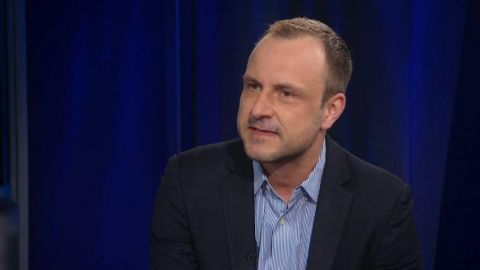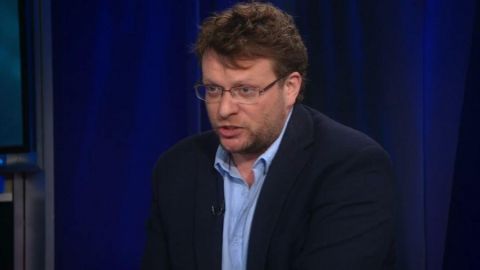Read Transcript EXPAND
CHRISTIANE AMANPOUR: So, let’s just start with what the FBI association has called for, and that is to make domestic terror an actual federal crime. I mean, I was amazed that it’s not. What — is that the right first move?
PETER NEUMANN, AUTHOR, “BLUSTER: DONALD TRUMP’S WAR ON TERROR”: I think it’s necessary and it’s been called for for years. Especially in the past few years, there has been a year on year increase in incidents of hate crime, in extremist murders, terrorist plots by far-right extremists. Really since 2015, these numbers have increased year on year. Yet, the current administration hasn’t really done anything about it. It was absolutely needed that especially the FBI itself is calling for that.
AMANPOUR: What has — I mean, why hasn’t it? Is there sort of a conflict between what you can do against it? I mean, some people say it’s freedom of speech or freedom of this, that or the other that is online, that you can’t sort of crack down on these.
NEUMANN: I think it’s certainly harder in the United States than, for example, in the U.K. because of the First Amendment, because free speech is so absolute. So, whereas the British government can crack down on websites and can arrest people for racial incitement. Those laws do not exist and they will never exist in the United States. However, there’s also a politicalists. When the Trump administration came in, they had the attitude that being worried about White nationalism is a bit of a liberalist — it’s a bit of an Obama issue. The real enemy is radical Islam. And so, a lot of efforts were shifted in that direction and programs that dealt with right-wing extremism were, in fact, shot down.
AMANPOUR: So, let’s just take that because radical Islam, for a long time, was and certainly in other places remains a problem. But it’s shifted in the U.S. They’re not coming from abroad to infiltrate the U.S. They’re sort of radicalizing or they were inside the United States. Massacres done in the name of Islam. But now, even that shifted to this White nationalism, this White supremacy. So, how much of a heavy lift is it to move law enforcement and statutes and all the political and security efforts that need to take place?
NEUMANN: I think it’s less difficult than it seems. At the FBI, for example, at DHS, the Department of Homeland Security, there are people who have been working on these issues for years. Except in the past few years, they’ve been sidelined. I think they need to be brought up again. They need to be promoted again. People have to be told, “You can make a career. You can get a promotion by looking after White nationalists.” That’s not been the case for the past few years. It was not a priority. By making it a priority again, you can, I think, recycle some of these energies that have been lost.
About This Episode EXPAND
Christiane Amanpour speaks to Peter Neumann about the changes needed to make the United States safer. Ernest Moniz joins the program to break down the current threat of nuclear welfare, followed by Peter Pomerantsev, who discusses his new book, “This Is Not Propaganda.” Dr. Siddhartha Mukherjee sits down with Walter Isaacson to discuss how gene editing technology could be used to combat cancer.
LEARN MORE



